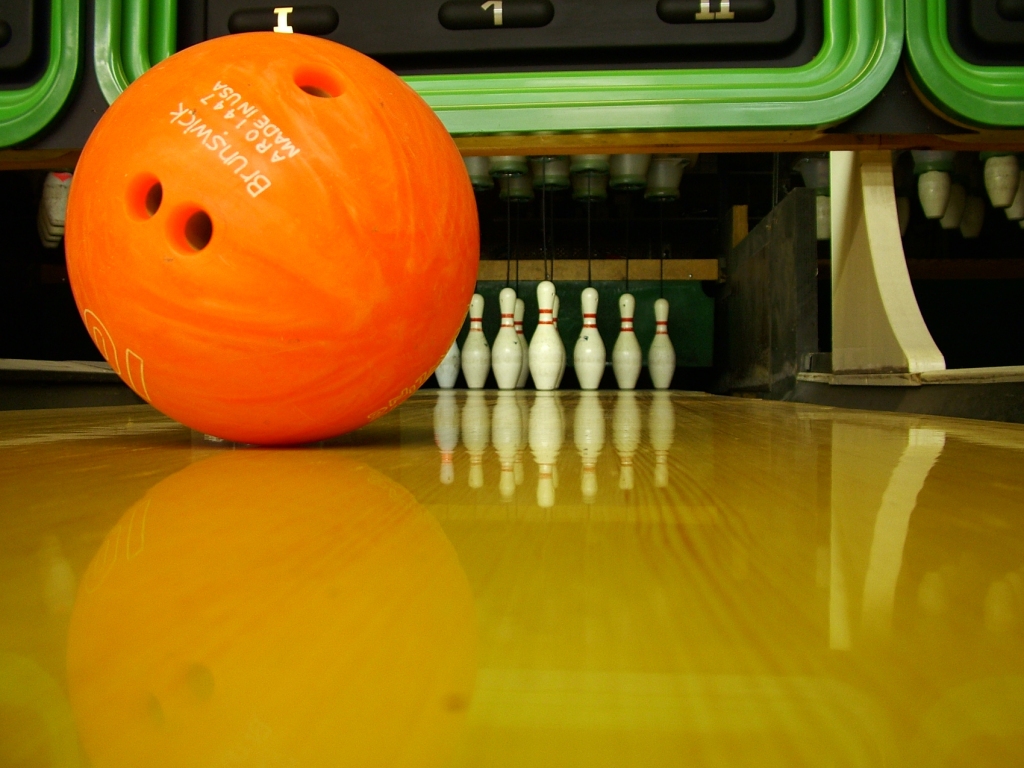 If you are old enough to remember the first run of the Flintstones, then you probably remember that Fred’s hobby is bowling, and if you watch Honeymooner’s re-runs you probably notice that Ralph and Norton both worship their bowling balls. However, bowling as a symbol of the good life is not confined to television sitcoms. Professor Robert Putnam in his Bowling Alone uses the sport as a metaphor to make the point that social capital has eroded. Yet, it is quite interesting to note that just before the Columbine shooting, the miscreants went bowling. While bowling is viewed as a wholesome American pastime, we can’t say that the bowling club did Eric Harris or Dylan Klebold any good. Of course, I am not the only one to notice this. In fact, Michael Moore picked up on the bowling theme when he titled his film about the massacre Bowling for Columbine.
If you are old enough to remember the first run of the Flintstones, then you probably remember that Fred’s hobby is bowling, and if you watch Honeymooner’s re-runs you probably notice that Ralph and Norton both worship their bowling balls. However, bowling as a symbol of the good life is not confined to television sitcoms. Professor Robert Putnam in his Bowling Alone uses the sport as a metaphor to make the point that social capital has eroded. Yet, it is quite interesting to note that just before the Columbine shooting, the miscreants went bowling. While bowling is viewed as a wholesome American pastime, we can’t say that the bowling club did Eric Harris or Dylan Klebold any good. Of course, I am not the only one to notice this. In fact, Michael Moore picked up on the bowling theme when he titled his film about the massacre Bowling for Columbine.
Bowling does appear to be a solid recreational activity, but like others, it is fading. Putnam’s point of course is that the deterioration of civic organizations, such as bowling clubs, has a detrimental effect on society, but does it?
The idea of the front porch visit is not entirely dead, but with IMs and texting and cell phones, it is hardly worth the effort. It is true that on some level, laziness has crept into our days. We don’t even have to pick up a phone to communicate anymore. Perhaps far into the future we will as a species be able to communicate telepathically and this will make us less likely to move, but we wouldn’t trade that new talent for the way things used to be. Just because the front porch visit is less likely and bowling clubs are not as popular as they were in the 50s or the stone age, does not mean that social life is dead. In fact, nothing could be further from the truth.
All the tweeting and texting and Facebooking has brought us closer together as a society, not further apart. Yes, if you plant yourself in front of the computer for endless hours and do nothing else, you will be worse off than Alice Kramden who had nothing to do but stare at her four walls. But most people do not do that. Fitness is a growing trend. We realize that we do need to move and we are starting to do that. We may not want to go bowling–not the most exciting sport in the world–but we are active and social. We do things. We have friends. We join “meet up” groups online, but the key phrase there is “meet up,” so we do leave our homes. And frankly, while much attention is placed on how things are not how they used to be, I think we are better off in a world where we can, at the touch of a button donate to worthy causes, send letters to government officials, and send a quick text to our friends so they know we are thinking of them.
